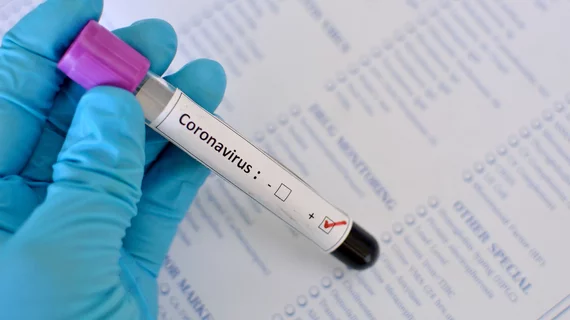Patients with COVID-19 should keep taking key CVD medications
Patients with cardiovascular disease should continue taking angiotensin-converting enzyme (ACE) inhibitors and angiotensin-receptor blockers (ARBs) as prescribed if they are diagnosed with the new coronavirus (COVID-19), according to a statement from the American Heart Association (AHA), Heart Failure Society of America, and American College of Cardiology (ACC).
These medications—often used to treat heart failure, hypertension, ischemic heart disease, diabetes and other cardiovascular indications—remain a pivotal part of the treatment process, the societies explained, noting that “misinformation” on the subject may be causing confusion among some patients.
“We understand the concern—as it has become clear that people with cardiovascular disease are at much higher risk of serious complications including death from COVID-19,” Robert A. Harrington, MD, AHA president and Arthur L. Bloomfield Professor of Medicine at Stanford University, said in a prepared statement. “However, we have reviewed the latest research—the evidence does not confirm the need to discontinue ACE-i or ARBs, and we strongly recommend all physicians to consider the individual needs of each patient before making any changes to ACE-i or ARB treatment regimens.”
“The continued highest standard of care for cardiovascular disease patients diagnosed with COVID-19 is our top priority, but there are no experimental or clinical data demonstrating beneficial or adverse outcomes among COVID-19 patients using ACE-i or ARB medications,” Richard J. Kovacs, MD, president of the ACC and Q.E. and Sally Russell Professor of Cardiology at Indiana University School of Medicine, said in the same statement. “We urge urgent, additional research that can guide us to optimal care for the millions of people worldwide with cardiovascular disease and who may contract COVID-19. These recommendations will be adjusted as needed to correspond with the latest research.”
Click here for information on the the ACC's COVID-19 guidance for cardiologists.

